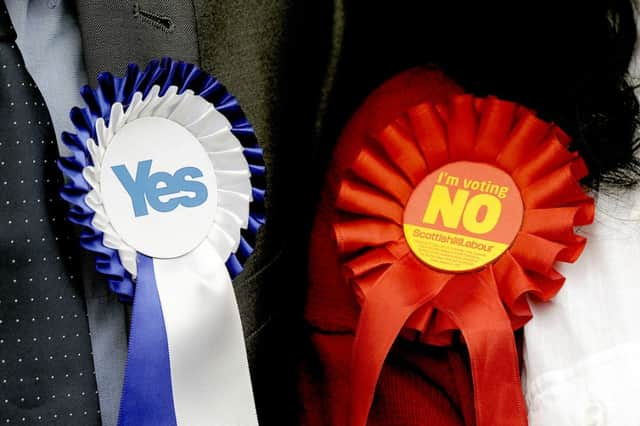Scottish independence: Vow had ‘no impact’ on vote


And the last TV debate between Alex Salmond and Alistair Darling, which the former First Minister was widely deemed to have won, also had little effect, according to the analysis of web search data.
The study also showed that the more research people carried out online, the less likely they were to vote for independence.
Advertisement
Hide AdAdvertisement
Hide AdA YouGov poll published on 5 September, which put the Yes campaign four points behind Better Together, did have a significant positive impact on the Yes vote, but no effect on online search activities.
Ronald MacDonald, Adam Smith Professor of Political Economy at the University of Glasgow, said: “Over the course of the campaign, it appeared that the more information people searched for online, the less likely they were to vote ‘Yes’.
“After certain events, such as the rejection of the potential currency union by George Osborne, those identifying as Yes voters were more likely to be driven by short-term emotion than long-term rationality.”
Prof MacDonald had been a trenchant critic of SNP currency policy during the referendum, even warning that an independent Scotland’s economy could crash within seven years.
FOLLOW US
SCOTSMAN TABLET AND MOBILE APPS
The Vow was made by Prime Minister David Cameron, Labour leader Ed Miliband and Deputy Prime Minister Nick Clegg in the closing days of the referendum as polls closed.
It pledged that new powers would be devolved to Holyrood in the event of a referendum No vote.
It resulted in the Smith Agreement setting out plans for new tax and welfare powers for the Scottish Parliament which is now going through the legislative process at Westminster.
Other key results reveal that the key element in pushing the Yes vote to 45 per cent in the final weeks of the campaign was the “grassroots effect” of pro-independence voters on swing voters.
Advertisement
Hide AdAdvertisement
Hide AdThe study was undertaken by Glasgow University economists using data obtained from Google Trends Big Data, a real time online search volume service.
All the data analysed in this study was sampled in real time and none of the results in the paper are drawn with the benefit of hindsight.
Researchers believe that the accuracy of these results shows internet search data may prove an increasingly valuable way of analysing future election results.
“Over the course of the referendum we were able to compare what was happening online with the various poll results to get a relatively accurate fix on the referendum outcome,” Prof MacDonald added.